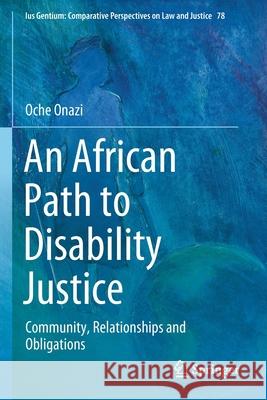An African Path to Disability Justice: Community, Relationships and Obligations » książka
topmenu
An African Path to Disability Justice: Community, Relationships and Obligations
ISBN-13: 9783030358525 / Angielski / Miękka / 2021 / 179 str.
An African Path to Disability Justice: Community, Relationships and Obligations
ISBN-13: 9783030358525 / Angielski / Miękka / 2021 / 179 str.
cena 523,30
(netto: 498,38 VAT: 5%)
Najniższa cena z 30 dni: 501,19
(netto: 498,38 VAT: 5%)
Najniższa cena z 30 dni: 501,19
Termin realizacji zamówienia:
ok. 22 dni roboczych
Dostawa w 2026 r.
ok. 22 dni roboczych
Dostawa w 2026 r.
Darmowa dostawa!
Kategorie:
Kategorie BISAC:
Wydawca:
Springer
Seria wydawnicza:
Język:
Angielski
ISBN-13:
9783030358525
Rok wydania:
2021
Wydanie:
2020
Numer serii:
000354656
Ilość stron:
179
Waga:
0.28 kg
Wymiary:
23.39 x 15.6 x 1.07
Oprawa:
Miękka
Wolumenów:
01
Dodatkowe informacje:
Wydanie ilustrowane











